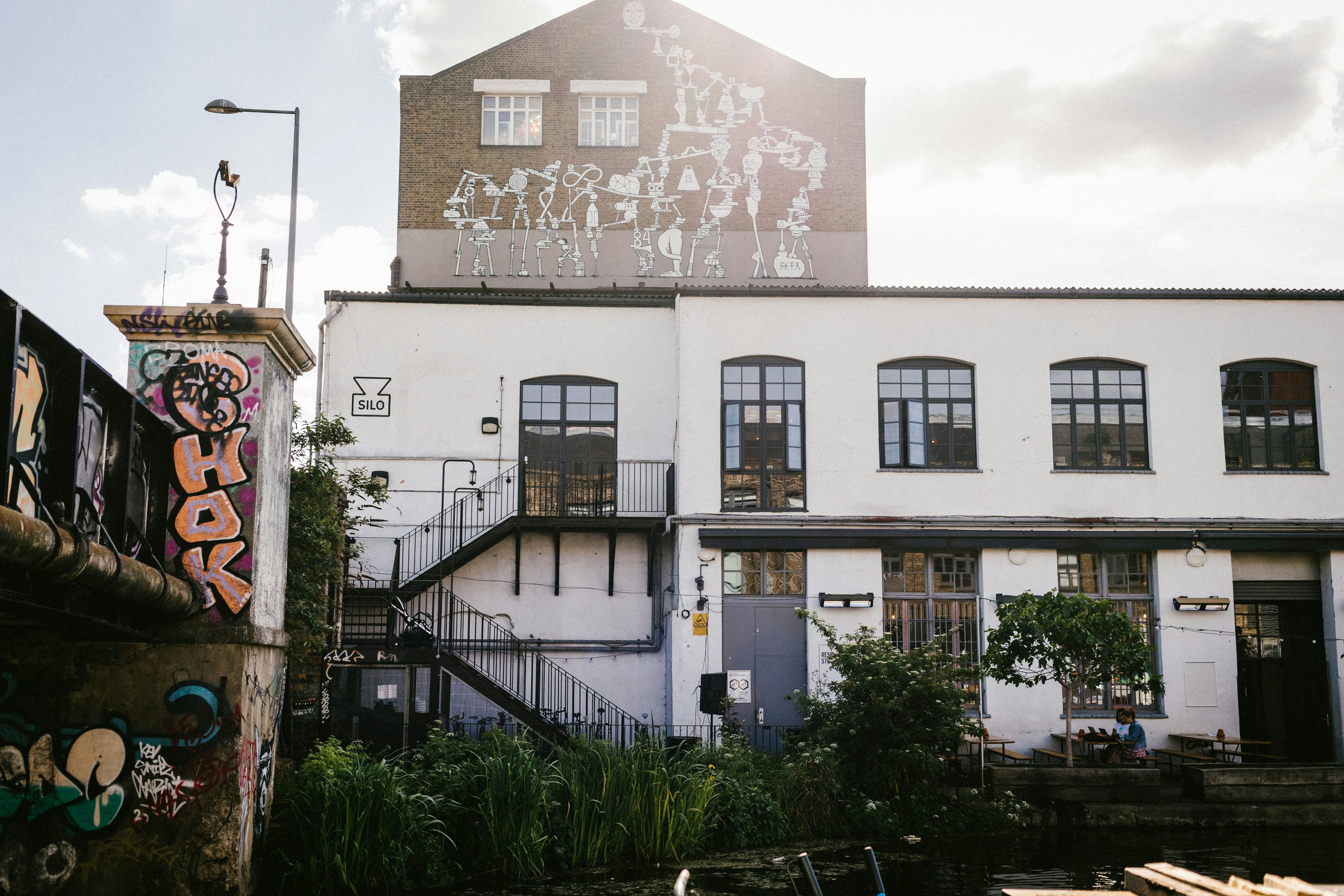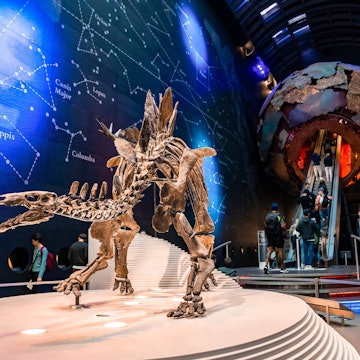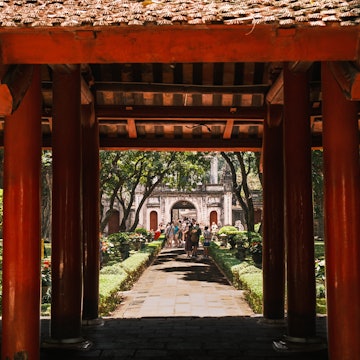
The best places to eat in the world, according to top London zero-waste chef

Jun 22, 2023 • 5 min read

Douglas McMaster, head chef at Silo and Le Doyenné restaurant where he had one of his best meals © James Nelson
If you haven’t heard of Silo, the world’s first zero-waste fine-dining restaurant, you probably haven’t been to London lately.
The restaurant, which launched in Brighton before moving to East London in 2019, does not contain a single trash can. All ingredients arrive in reusable packaging. The team mills its own flour to make bread. And they ferment, brew or compost all their food waste.
We sat down and chatted with Silo owner Douglas McMaster – chef, author, presenter and “radical sustainability” trailblazer – on his passions for travel, eating out and the urgent need for sustainability to be baked into everything we do.
How to find good places in a new city
So how does Douglas go about finding a good place to eat or drink when he’s traveling? We assumed – wrongly – that sustainability is the primary driver of all his dining decisions.
Rather than search those predictable “best, most-sustainable restaurants” lists, which often surface places that are not necessarily living up to their marketing hype, Douglas looks for passion.
“It’s a luxury to go to a restaurant, so I’m looking for good restaurants. I find when there is reverence in every detail, that is as powerful an approach to sustainability as any,” he says.

“I heard a great quote at this symposium [the Schwarzenegger Climate Initiative’s Austrian World Summit] recently: ‘Passion is the greatest form of renewable energy,’” he continues. “I love that.
“I look at what’s available and hope there is some semblance of care and compassion for the environment. There are so few places doing sustainability really thoroughly yet, and there isn’t a reliable source of information out there.”
To keep it simple, Douglas explains he’s looking for people “who give a shit… The places I picked genuinely care, and have expressed their business through those means – that’s what I ascribe to.”
Start with specialty coffee shops
If you haven’t had time to do too much advance planning before landing in a new city, Douglas's top tip for finding venues that care about what they’re doing is by seeking out specialty coffee shops. (Another insider tip: Lonely Planet’s website and guidebooks are a great place to start.)
“Specialty coffee shops are great because people in the coffee industry are passionate,” says Douglas. “They’re often also where you will find a city’s creative communities. In terms of commercial businesses, coffee shops often sprout up first. From there, I look around at the restaurants and bars.”
Top sustainable spots to dine
With this in mind, Douglas shared his favorite places he’s eaten at over the last few years – all of them fueled by passion.
“All restaurants need to be commercially sustainable, but for me there needs to be a more salient motivation, a vision, or an idea, something to believe in. That is what I’m attracted to,” he says. “When I’m eating out, I almost don’t mind if a meal isn’t that well executed if their heart is in the right place.
“I was so in love with what these places are doing that I’ll remember them for the rest of my life.”
For his top picks, McMaster was impressed by “ambitions that were so radical and bold and beautiful, the whole experience was mind blowing.
“We live in a world now where fine dining can be all about perfection, which is a projection of success that is superficial. There’s this risk of a homogenous worldview in the industry, but I like diversity. What nature tells us is that diversity is good: there is strength and a dynamic, exciting existence around diversity. I think this list includes individuals that diversify themselves from the mainstream,” McMaster explains.
So in no particular order, here are the top restaurant picks from London’s food-system revolutionary, Douglas McMaster.

St. JOHN, London, United Kingdom
“St. JOHN is the most important British restaurant of all time. Its reputation leaves me with very little to say. My greatest memories of London dining have included some delicious offal in this white-walled temple.”
Ernst, Berlin, Germany
“Berlin is a thriving progressive city for creative gastronomy. The team from Ernst are the finest example of a farm-to-city table restaurant. A stunning expression of natural farming in a small eight-seater, with an unmistakable influence from Japan, but with a nomadic creativity.”
Pearl Morrisette, Niagara, Canada
“Possibly Canada’s best-kept secret: Pearl Morrisette. The world of gastronomy doesn’t often shout about this monster restaurant. It’s in a super-plush contemporary barn in Niagara, and was one of my most memorable meals to date. It’s another farm-to-table restaurant, but they themselves are growing the food in the middle of the verdant wine region.”

Le Doyenné, Île-de-France, France
“A similar trend here: Le Doyenné is another farm-to-table with a tenacity for self-sufficiency; they have their own forest that feels like you’re in Jurassic Park, but instead of dinosaurs there are pigs as big as dinosaurs.”
Saint Peter, Sydney, Australia
“One of the most significant innovations in sustainable gastronomy is Josh Niland’s nose-to-tail fish butchery, Saint Peter in Paddington, Sydney. It’s blown up the world of fish with a fresh new outlook. This place deserves all the hype it’s showered with.”

SEM, Lisbon, Portugal
“SEM brings new-wave sustainability to Lisbon’s traditional food scene. Its fiercely authentic, dynamic, creative and delicious food also has a strong focus on fermentation. I think Lisbon doesn’t know what just hit it.”
Den Vandrette, Copenhagen, Denmark
“This is the legendary natural wine bar that all the natural wine bars swear fealty to. I can’t count the times I’ve fallen in love with a bottle in this place. It’s created by eccentric master of wine Sune Rosforth. He insists I drink out of one of the many goat horns garnering the walls.”
Lovebirds, New York City, USA
“This place has just opened, but it’s going to be a rocket in the pocket for New York’s dining scene. With an eccentric all female crew and unquestionable sustainability virtues, Lovebirds is my next destination.”
Our chat concluded with some philosophizing about the barriers preventing more of us making the kinds of radical changes Silo has made, like doing away with food waste completely.
“If everybody had real skin in the game – the game being sustainability – we could fix everything immediately.”
For more, check out Douglas McMaster’s latest venture in sustainability, the Zero Waste Cooking School.













